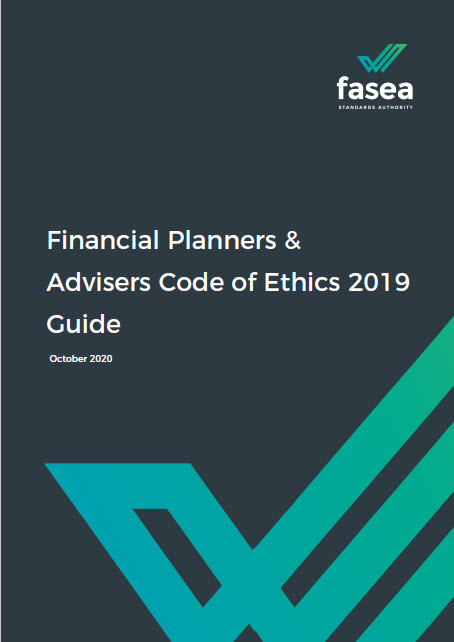
Read the latest October 2020 Guidelines for FASEA?
I initially expected these guidelines might provide the “rail lines” for advisory firms to align their growth. Thanks to an extraordinary 2020, advisory firms are seeking as much probability and clarity as possible to grow, re-build, and adjust their business plans.
However, there are no rail lines.
The guidelines are more a discussion of the features about the terrain upon which advice firms will grow.
The guidelines contain an clear consistency— the lack of detail.
Standard Two
Standard Two seeks to ensure advisers act in the best interest of their clients.
Few would argue.
But what is the best interest of each client?
Is it best interest relative to the product being advised upon, the best interest relative to the numerous influences in the client’s broad financial life, or is it best interest as defined by a risk mitigation methodology of the adviser’s licensee?
The model of advice initially extolled by Plato centuries ago where the cure of a part should not be attempted without the treatment of the whole, has served the medical, financial and legal services professions well.
However, today’s Corporations Act defines financial advice as another product, so how can advice as another product serve the whole?
Standards Five and Six
Standard Five states that all advice should be appropriate to the client’s individual circumstances, while Standard Six outlines that advice must actively consider the client’s broader long term interests and likely circumstances.
What circumstances?
There is no suggestion that circumstances are limited to the client’s superannuation balances, spending habits, risk profiles, financial literacy. Circumstances can extend to include client’s financial hopes, good and bad financial habits, and beliefs about money, and the myriad of influencing circumstances of the significant other financial lives in the lives of each client?
This is before the overlay of circumstances unexpectedly ignited by Covid-19 events, geo-political instability, interest rate movements and natural catastrophes.
Standard Seven
Be fair, reasonable and of value is Standard Seven’s creed.
But who is the judge of fair, reasonable and value?
The client? The compliance officer? The media? The judicial system? The responsible manager? The reasonable unemotional person walking the imaginary street?
Wow. Some big questions are ahead particularly for the well-established vested interests as they use their power to protect their existing approaches, assumptions and share prices.
Standard Twelve
Then along comes an extraordinary twist of Standard Twelve seeking every member of Australia’s newest profession to uphold and support the Code while in an extraordinary example of specific detail the guidelines exclude corporate financial services license from having to uphold the Code?
Interesting carve-outs.
The terrain described in the October 2020 FASEA Guidelines is a deliberate stepping stone purposely issued to guide Australia’s newest profession into new territories ahead.
The Guideline’s lack of clarity and specific instruction is intentional. For those criticising the lack of FASEA detail, I’d suggest you might be starting your 2021 advice journey looking through the wrong windscreen.
Bring it on. FASEA is simply a stepping stone to something else.
It’s up to us to create that something else.
What do you reckon?
Photo Credit: Fasea.gov.au
ABOUT JIM STACKPOOL
For over 30 years, Jim has influenced, coached, and consulted to advisory firms across Australia. His firm, Certainty Advice Group coaches, trains and is building a growing Advice Group of firms delivering comprehensive, unconflicted advice, priced on value and impact provided. The community of advisory firms align with Australia’s highest and only ACCC/IP Australia Certification Mark standard of comprehensive, unconflicted advice – Certainty Advice. He is also an author and keynote speaker.

Jim,
Indeed, it is my strong view that FASEA is and should only be a stepping stone to start the journey for advisers to take control and influence their own profession.
It is up to advisers who are at the coalface of financial advice to be answering the above questions and coming up with practical solutions to address the FASEA Code of Ethics challenges once the Single Disciplinary Body has been established.